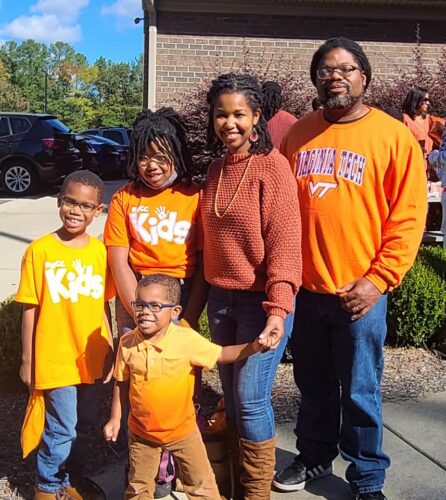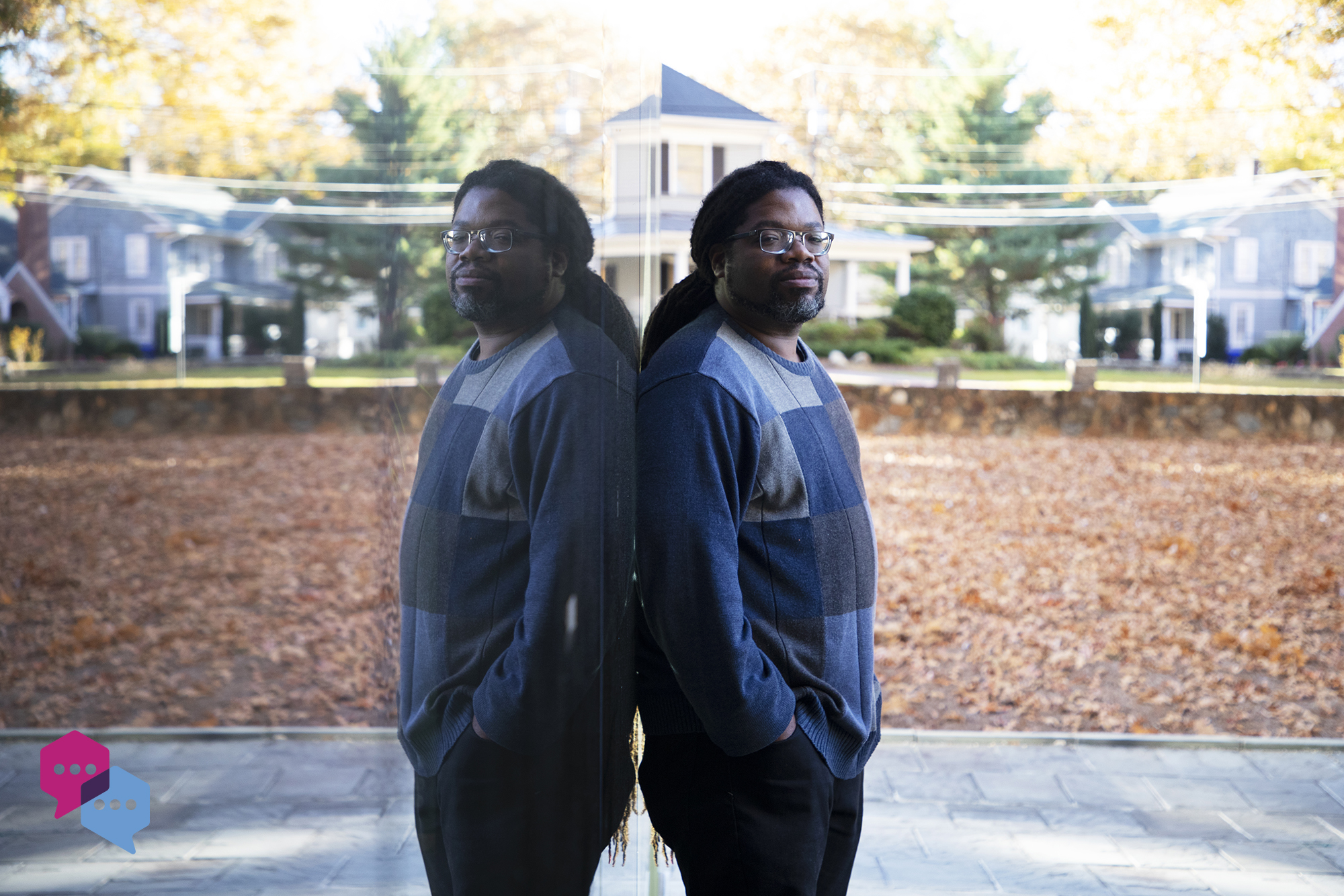Q: When you were a child, what was your response to this question: “What do you want to be when you grow up?”
A: Honestly, it depends on when you asked me. I went through periods of wanting to be a mechanic, a microbiologist, a cartographer, an architect, and a software engineer.
Q: Share the pivotal moment in your life that helped you choose your field of study.
A: I could point to several, but one stands out the most to me and sets the stage for the others. Before I started taking Spanish in the eighth grade, my father advised me to learn as much of the language as I could and to become as proficient as I could, because it just might serve me well. I don’t think either of us knew how right he would be.

Graham enjoys some afternoon sunshine with his wife and children.
Q: Tell us about a time you encountered a tricky problem. How did you handle it and what did you learn from it?
A: I had a project in one of my graduate school courses in which I was analyzing a particular language function and its associations with social factors such as age, sex, and education. In the sociolinguistic corpus I was searching for the project, I found a surprisingly high number of one particular structure. As I read the context in which this structure was found, though, I realized that it was an entirely unrelated structure with a particular pragmatic function — a discourse marker, as we commonly call them — that was unfamiliar to me. This discovery led me into one of my primary lines of research, one that is still productive today.
Q: Describe your research in 5 words.
A: How have Romance languages evolved?
Q: What are your passions outside of research?
A: I have been involved with music all my life and like to sing or play — or both — as time allows. I have played piano for 32 years and bass guitar for about eight. I am also a fan of the automotive industry and like to keep up with the market, and every now and then you can find me doing maintenance on my family’s cars. Finally, but most importantly, I spend as much time as possible with my wife and children.


